Yes, it is possible to live off-grid in texas.off-grid living is an alternative lifestyle where people live independently without relying on public utilities like electricity, water, and gas. Some may choose this lifestyle to reduce their carbon footprint, live self-sufficiently, or simply enjoy the freedom it provides.
Texas, with its diverse climates and abundant natural resources, is well-suited for off-grid living. With proper planning and preparation, off-grid living in texas can be a rewarding and sustainable lifestyle that offers a high degree of freedom and self-sufficiency. In this article, we will discuss the basics of off-grid living in texas, including the challenges and rewards of this lifestyle.

Credit: www.anoffgridlife.com
Understanding “Living Off The Grid In Texas: Ultimate Guide To Self-Sufficiency”
Living off the grid in texas is an adventure that offers ultimate freedom and self-sufficiency. The idea of breaking free from the shackles of the mainstream world and living sustainably can be alluring for some. However, before you decide to take the plunge into off-grid living, it is essential to understand what it means to be self-sufficient and the benefits of living off the grid in texas.
Defining Self-Sufficiency And The Off-Grid Lifestyle
Living off the grid means that you are entirely self-sufficient and do not rely on public utilities such as electricity, gas, water, and sewage. You create your own energy, grow your food, collect your water, and dispose of your waste.
Additionally, you are responsible for your own security and emergency services. Self-sufficiency, on the other hand, refers to the ability to provide for all your basic needs without depending on external sources.
The off-grid lifestyle requires an enormous investment in time, money, and energy to set up your system. It means learning skills such as homesteading, gardening, and animal husbandry. Ultimately, it’s a lifestyle that requires commitment, perseverance, and a willingness to live in harmony with nature.
Benefits Of Living Off The Grid In Texas
Living off the grid is not for everyone. However, those who make the choice to live this way reap numerous benefits, including:
- Cost savings: Living off the grid allows you to save money on utility bills, groceries, and other expenses. You can generate your electricity, grow your food, and manage your waste with just a little investment.
- Independence: You can own your life, decide and have complete control over your life without interference from others. That level of freedom is priceless.
- Environmental impact: Living off-grid also means reducing your carbon footprint. You have control over your waste disposal and live a sustainable lifestyle with minimal impact on the environment.
Choosing The Right Location For Your Off-Grid Lifestyle
Choosing the right location is critical to living off the grid. When looking for land, consider the following:
- Water source: Access to clean and reliable water is essential for survival. Consider the cost and availability of groundwater and surface water sources.
- Land fertility: Your land should have fertile soil, which is suitable for growing crops and rearing livestock.
- Energy source: Review the availability of solar and wind energy, which can guarantee an independent source of power.
- Climate: Consider the climatic conditions in the area, including temperature and precipitation patterns to ensure that your chosen location aligns with your desired lifestyle.
Living off the grid in texas provides an opportunity to achieve greater independence, sustainability, and self-sufficiency. Although such lifestyles can be challenging, the benefits are well worth the effort. It all starts with understanding the meaning of self-sufficiency, the benefits of living off the grid, and the importance of selecting the right location.
Planning Your Off-Grid Lifestyle
Living off-grid in texas might be the ultimate dream for nature enthusiasts who want to experience complete freedom and sustainability in their lifestyle. However, transitioning to an off-grid lifestyle is not something that can be done overnight. It requires proper planning, research, and investment to ensure a comfortable and successful transition.
Below are some essential steps to help you plan and prepare for your off-grid lifestyle in texas.
Setting Goals For Your Off-Grid Living
Before making the transition to off-grid living in texas, it is essential to set clear and specific goals. It’s critical to know what you want to get out of your off-grid lifestyle to help you make informed decisions. Therefore, ask yourself why you want to live off-grid in texas, and what you aim to accomplish.
Some common goals include reducing energy consumption, living a sustainable lifestyle, and self-sufficiency.
Preparing Financially For Your Transition
Going off-grid in texas requires a considerable investment. Self-sufficiency, renewable energy sources, and water supply all come at a cost. Therefore, it is essential to budget early on and assess your financial situation. Make sure that you have enough money to cover the upfront costs of purchasing and installing the necessary equipment.
Keep in mind that living off-grid in texas is more about savings in the long run than return on investment. Therefore, ensure that you have a financial plan in place before making the switch.
Selecting The Right Off-Grid Power And Water Sources
Off-grid living in texas requires a reliable and sustainable power and water source. It’s crucial to choose energy sources that will meet your needs while minimizing your environmental footprint. Some excellent options for renewable energy sources include solar, wind, and hydroelectricity.
For water sources, consider digging a well or harvesting rainwater.
Essential Off-Grid Tools And Gear For Texas Living
Living off-grid in texas requires some essential tools and gear to ensure survival and comfort. It’s essential to have a survival kit that includes a first aid kit, emergency food, water, and essential items like a compass, flashlight, and radio.
Other essential equipment includes solar panels, batteries, water filtration systems, and gardening equipment.
Transitioning to off-grid living in texas requires proper planning, budgeting, and research. With the right support and investment, living off-grid can be a rewarding and fulfilling experience. Use these essential steps as a guide to help you transition to your off-grid lifestyle successfully.
Building Your Off-Grid Home In Texas
If you’ve ever thought about getting off the grid and moving to texas, there’s no better time than now. Building a sustainable off-grid home requires careful planning and consideration; however, it’s achievable with a bit of effort and sufficient knowledge.
With this in mind, here are some valuable insights on how to build your off-grid home in texas.
Choosing Eco-Friendly Building Materials For Texas Living
Choosing the right building materials for your off-grid home in texas is crucial to the sustainability of your living. Your building materials should be environmentally friendly, locally-sourced, and durable. Here are some eco-friendly materials you can consider for your off-grid home in texas:
- Straw bales: Straw bales are highly sustainable and cost-effective insulation material that is perfect for hot and dry climates like texas.
- Recycled steel: Steel is sturdy and long-lasting. Recycled steel is an eco-friendly option since it reduces waste production and conserves energy.
- Rammed earth: Rammed earth is an eco-friendly and natural material used for walls. It is energy-efficient, easy to maintain, and has excellent thermal massing qualities that can keep your home cool in the summer.
- Solar panels: Solar panels are a great way to supplement your off-grid energy needs. They are eco-friendly, provide renewable energy, and can save you money on your utility bills in the long run.
Planning Your Sustainable Home Design
Before you start building your off-grid home in texas, you need to have a sustainable design plan in place. Your plan should focus on your off-grid energy needs, water conservation, and waste management. Here are some tips to consider when planning your sustainable home design:
- Off-grid energy options: Consider installing a solar power system or a wind turbine to generate your off-grid energy needs. You should also focus on energy-efficient appliances and lighting.
- Water conservation: Install a rainwater harvesting system with a water filtration system to conserve water. Consider using low-flow fixtures to reduce water consumption in bathrooms and kitchens.
- Waste management: Develop a composting system for your food waste. Install a greywater system to recycle and reuse the water from showers, sinks, and washing machines.
Building And Installing Your Off-Grid Home Essentials
Once you have your design plan in place, you can start building and installing your off-grid home essentials. These essentials include your home’s foundation, walls, insulation, roofing, and flooring. Here are some things to keep in mind when building and installing your off-grid home essentials:
- Foundation: Choose a foundation type that is suitable for your soil type and weather conditions in texas.
- Walls: Use eco-friendly materials like straw bales or rammed earth for your walls. Install high-quality insulation to regulate the temperature in your home.
- Roofing: Consider metal roofing for durability and energy efficiency. It is also perfect for harvesting rainwater.
- Flooring: Use durable, locally sourced materials like polished concrete or sustainable hardwood for your flooring.
Building an off-grid home in texas requires thorough planning and knowledge. Choosing eco-friendly materials, planning your sustainable design, and building and installing your off-grid essentials are some of the things you need to consider. By following these tips, you can achieve your dream of living sustainably off the grid in texas.
Harvesting Natural Water Sources For Clean Drinking Water
Can You Live Off Grid In Texas
Living off the grid in texas means disconnecting from society’s infrastructure and relying solely on natural resources to sustain everyday living – food, shelter, water, and energy. One of the essential requirements for survival is water. Fortunately, texas has abundant natural sources of water that can be harnessed to provide clean drinking water.
Understanding Natural Sources Of Clean Water In Texas
Understanding the diverse natural sources of water in texas is key to living off the grid. Here are some critical points to consider:
- Texas has many natural freshwater sources, including lakes, rivers, and underground aquifers.
- Surface water can be affected by pollution from agricultural activities, animal waste, or industrial emissions.
- Groundwater is typically cleaner than surface water since soil and rock provide natural filtration.
- Rainwater is a natural source of fresh, clean drinking water, particularly in areas with high rainfall.
Purifying Methods To Ensure Water Safety
Purifying water is crucial to remove any contaminants and ensure it’s safe for consumption. Here are some common methods:
- Boiling water kills most microorganisms, making it safe to drink.
- Filtration systems, such as activated carbon, reverse osmosis, and ceramic, can remove chemicals, bacteria, and viruses.
- Chlorine or iodine can be used to disinfect water and remove pathogens.
- Solar stills can be used to distil and purify water by harnessing the energy from the sun and converting it into vapour that’s collected as clean drinking water.
Harvesting Rainwater For A Sustainable Water Source
Rainwater harvesting is a sustainable way of sourcing water in texas. It’s a straightforward process that involves collecting rainfall from roofs or other surfaces and storing it for future use. Here are some key points to consider:
- Texas has an ample supply of rainfall, with approximately 34 inches on average per year.
- Harvested rainwater can be used for irrigation, drinking, and livestock.
- A rain barrel is an affordable and easy way for homeowners to collect rainwater for personal use.
- Larger systems, such as cisterns, can store thousands of gallons of water and support larger households.
Living off the grid in texas requires careful planning, particularly when it comes to water supply. Understanding natural water sources, purifying methods, and rainwater harvesting are the first steps towards a self-sustaining lifestyle. By following these guidelines, texans can live a self-sufficient life while protecting the environment.
Sourcing And Growing Food In Texas
Living off the grid in texas is not an easy task, but it is not impossible. One of the essential aspects of off-grid living is to source and grow your food. Here are some useful tips for sourcing and growing food in texas, starting with sustainable farming practices.
Sustainable Farming Practices For Off-Grid Living In Texas:
- Use composting to convert organic waste into nutrient-rich soil for crops.
- Crop rotation: Avoid planting the same crop in the same area year after year. Instead, change the crop each season to help prevent pests, soil-borne diseases, and depletion of soil nutrients.
- Use natural pest control methods to minimize the use of harmful chemicals.
- Water harvesting and conservation: Use rainwater collection systems and gravity-fed irrigation systems to conserve water and reduce reliance on municipal sources.
Selecting Crops For Texas’S Climate And Soil Types:
- For the harsh, hot summers in texas, crops that thrive include okra, tomatoes, peppers, eggplant, sweet potatoes, and cantaloupes.
- For the winter months, consider planting root crops such as carrots and beets, as well as leafy greens such as swiss chard and collard greens.
- Soil type: Be aware of the type of soil in your area and select crops that thrive in it. For instance, sandy loam is the best soil type for most crops in texas.
Designing And Building A Functional Greenhouse For Texas Living:
- Choose the right location for your greenhouse. It should be where it can receive maximum sunlight exposure and good drainage.
- Based on the climate in texas, choose a greenhouse design that suits the weather conditions.
- Select materials that are durable, long-lasting, and can withstand the harsh texas weather.
- Consider using renewable energy sources such as solar panels to power the greenhouse.
Living off the grid in texas is a challenge, but by following these tips, you can source and grow healthy, nutrient-rich food in a sustainable way. Try to use sustainable farming practices, select the right crops for your climate and soil type, and design a functional greenhouse that can withstand the harsh texas elements.
With some careful planning and hard work, you can thrive in an off-grid lifestyle in texas!
Raising Livestock
Living off the grid in texas can be a great way to live a sustainable lifestyle. It requires careful planning, commitment, and a willingness to live differently. One of the essential considerations for living off the grid is raising livestock.
Let’s take a look at the key points you need to know to successfully raise chickens, cows, and goats in texas for food and other resources.
Essential Considerations For Owning Livestock In Texas
Before diving into raising livestock, there are several essential factors to consider when owning livestock in texas:
- Check with your local county office to ensure that there are no restrictions or ordinances in your area related to owning livestock.
- You need adequate space for your animals to live and roam. Make sure you have enough land to accommodate your animals.
- Climate and weather can affect your animals’ well-being and health. You should research and plan accordingly.
- Consider the costs of food, water, supplies, and medical care associated with caring for your animals.
Sustainable And Self-Sufficient Animal Husbandry Practices
Living off the grid is all about being self-sufficient and practicing sustainable living. Some of the ways you can achieve this with animal husbandry include:
- Use natural and sustainable methods for feeding and caring for your animals. Avoid chemical fertilizers, pesticides, and antibiotics whenever possible.
- Practice rotational grazing to prevent overgrazing and improve soil health.
- Consider raising heritage breeds that are well-adapted to the local environment and require less maintenance.
- Reuse animal waste and manure for composting and fertilizing crops and gardens.
Raising Chickens, Cows, And Goats In Texas For Food And Other Resources
Chickens, cows, and goats are popular choices for raising livestock in texas. Here are some of the key points to keep in mind when raising them:
Chickens
- Chickens are relatively easy to care for and can provide a steady source of eggs and meat.
- They require minimal space and can even be kept in an urban environment.
- Provide a comfortable and secure coop for your chickens to roost in at night and lay eggs.
- Ensure your chickens have regular access to fresh food and water.
Cows
- Cows require more space and substantial resources, but they can provide a significant source of beef and dairy products.
- Consider raising grass-fed cows as they produce healthier and leaner meat than feed-lot cows.
- Calibrate your grazing patterns to avoid overgrazing and maintain sustainable grazing habits.
Goats
- Goats are a wonderful source of milk, cheese, and meat.
- They are easier to care for than cows and require less space.
- Make sure your goats have access to fresh browse and clean water.
- Consider breeding your goats to sell or trade their offspring with other homesteaders or farmers.
Raising livestock can be a pivotal element in living off the grid in texas. You need to put time and effort into caring for your animals and ensuring that they have everything they need to thrive while giving back. And if you’re passionate about it, raising livestock can be both rewarding and fulfilling.
Connecting With The Community
Living off the grid entails independence, sustainability, and self-sufficiency. It is a lifestyle that prioritizes minimalism and harmony with nature, and it’s a growing trend in texas. We’ll explore how you can connect with the like-minded community, barter and exchange resources, and hunt and fish for additional sources of food in texas.
Finding Like-Minded Individuals And Communities In Texas
Living off-grid in texas can be a lonely lifestyle. However, finding like-minded people can help you build a strong network. Here are some ways to find a community of people that share your values:
- Join social media groups and forums: Facebook, twitter, and reddit are great platforms that have various off-the-grid communities. You can get useful information, ask questions, and connect with people online.
- Attend events and workshops: Check local listings for sustainable living fairs, workshops, and events in your area. You can learn new skills, meet new people and even find a mentor.
- Go to off-grid communities: Texas has several off-grid communities you can visit, such as earthship texas in alpine, the green gorilla in palestine, and circle acres in austin.
Bartering And Exchanging Resources With Nearby Communities
Bartering is a great way to obtain goods and services without using money. It’s a common practice among off-gridders since they value sustainability and non-monetary exchanges. Here are a few tips to help you start:
- Start small: You can start exchanging simple things like produce, services, or homemade goods.
- Be open-minded: Be open to various offers and opportunities. You might find something that you don’t necessarily need, but someone else does, and vice versa.
- Join a barter group: There are several barter groups in texas you can join, like the central texas barter and trade exchange.
Hunting And Fishing For Additional Sources Of Food In Texas
Hunting and fishing are both great ways to obtain additional sources of food when living off the grid. Texas has a diverse range of wildlife and marine life, which makes it perfect for hunting and fishing. Here’s what you need to know:
- Get the necessary licenses: To hunt and fish in texas, you need a valid hunting or fishing license. You can obtain one from the texas parks and wildlife department or online.
- Know the regulations: Texas has strict regulations for hunting and fishing. Make sure you understand the rules and regulations before you start.
- Learn the skills: Hunting and fishing require skills, knowledge, and patience. Consider taking a hunting or fishing course to learn the basics.
Living off-grid offers many benefits, but it can also be challenging. Connecting with like-minded individuals, bartering, and hunting and fishing can help you overcome some of those challenges. We hope this article has been helpful, and you can utilize these tips to become more self-sufficient in texas.
Staying Connected With The World
Living off the grid is becoming a choice for many people who want to decrease their carbon footprint or live a simpler lifestyle. If you are considering moving off the grid in texas, it’s essential to know how to stay connected with the world.
Being away from the city doesn’t necessarily mean you have to be disconnected from society. Here are ways to stay connected while living off the grid in texas:
Essential Communication Methods For Living Off The Grid In Texas
Living off-grid in texas comes with its challenges, such as navigating emergencies. You need communication systems that are reliable and durable. Here are some of the essential communication methods:
- Satellite phone: This type of phone uses satellite technology to make and receive calls. It’s the best option for communication in areas with no cell service.
- Ham radio: A ham radio is a low-cost two-way radio that can communicate over long distances. It’s a reliable method of communication for emergencies.
- Cb radio: A cb radio is a short-range radio that can communicate up to a few miles away. It’s an excellent way to communicate with your neighbors in the vicinity.
In addition, it’s essential to have backup power sources for your communication methods to ensure they are always operational.
Navigating Off-Grid Challenges Such As Medical Emergencies And Emergencies
Living off-grid means you must be prepared for any emergency, including medical emergencies. One of the biggest challenges of living off-grid in texas is being far away from emergency services. Here are some ways to navigate off-grid challenges such as medical emergencies:
- First aid kit: Have a well-stocked first aid kit in your home that includes essential medical supplies.
- Learn first aid skills: It’s essential to learn first aid skills, so you can provide basic care before reaching medical help.
- Have an emergency plan: Create an emergency plan that includes instructions on how to handle different emergency scenarios. Share this plan with everyone living with you.
It’s critical to know where the nearest hospital and emergency services are, so you can get there quickly in case of an emergency.
Living off the grid in texas requires preparation, planning, and smart decision-making. Being connected with the world is essential. By having a reliable communication system and emergency plan in place, you can safely navigate off-grid challenges and enjoy the freedom and simplicity of living off the grid.
Maintaining Your Sustainable Lifestyle
Living off-grid is becoming an increasingly popular lifestyle choice in texas, but many wonder how to maintain it sustainably. Here we provide some tips and tricks for off-gridders to balance their off-the-grid lifestyle, troubleshoot common challenges, and keep their systems in good working order.
Balancing And Maintaining Your Off-Grid Lifestyle In Texas
Maintaining an off-grid lifestyle requires a certain level of dedication and commitment to sustainability. Here are some tips for balancing and maintaining your off-grid lifestyle in texas:
- Stick to a sustainable power source: Solar panels and wind turbines are popular options for off-grid texans. Make sure you have enough power to run your appliances, lights, and other devices while being conscious of your power usage.
- Ditch the disposables: Use reusable items, such as washable dish towels and cloth napkins instead of paper versions. If you use disposable products, try to find biodegradable options.
- Grow your own food: One of the most rewarding parts of off-grid living is growing your own food. Invest in a greenhouse and learn about permaculture practices to maximize your crop yield.
- Be mindful of your water usage: Collect rainwater and use low-flow fixtures to conserve water. A low-pressure showerhead can save a lot of water while still providing ample pressure.
Troubleshooting Common Off-Grid Challenges In Texas
Living off-grid comes with its own set of challenges. Here are some common challenges and ways to troubleshoot them:
- Power outages: Make sure to have a backup generator or battery system to keep your power running during outages.
- Water shortages: Collect rainwater in barrels or underground cisterns to have a reliable source of water during droughts.
- Pest control: Use natural and organic means of pest control, such as diatomaceous earth, to keep your crops safe.
Keeping Your Off-Grid Systems Functional And In Good Repair
To make sure your off-grid systems continue functioning correctly and sustainably, follow these tips:
- Perform regular maintenance checks on your solar panel and wind turbine systems.
- Regularly clean your panels and turbines to ensure maximum energy production.
- Invest in quality batteries to store your power.
- Use high-quality inverters for your power system.
- Have backup systems for all of your off-grid systems, including water collection and filtration.
Living off-grid can be a rewarding and sustainable lifestyle, but it requires dedication and knowledge of how to maintain your systems. By using these tips, you’ll find success in maintaining your off-the-grid lifestyle in texas.
Frequently Asked Questions For Can You Live Off Grid In Texas
Can You Live Off Grid In Texas Legally?
Yes, it is legal to live off grid in texas. However, you may need to obtain certain permits depending on the type of off-grid living you plan to do.
What Are The Benefits Of Living Off Grid In Texas?
Living off the grid in texas offers a lot of benefits, including reduced living expenses, self-sufficiency, and environmental sustainability.
How Does Off Grid Living Affect Property Values In Texas?
Off-grid living can have both positive and negative effects on property values in texas. It all depends on the location and the potential buyers in the area.
What Are Some Challenges Of Off-Grid Living In Texas?
Off-grid living in texas comes with some challenges, such as infrastructure limitations, harsh weather conditions, and the need to be self-sufficient.
Can I Have Internet While Living Off-Grid In Texas?
Yes, you can have internet while living off-grid in texas. There are many options available, including satellite internet and fixed wireless internet.
Conclusion
Living off-grid in texas can be a unique and rewarding experience. With its abundant natural resources and favorable weather conditions, the state is an ideal location for self-sufficient living. However, transitioning to off-grid living requires careful planning and preparation. From securing a reliable water source and generating alternative energy to ensuring sustainable food production, off-grid living is a long-term commitment that requires dedication and hard work.
But for those willing to make the necessary adjustments, it can also be a fulfilling and liberating way of life. Just remember that living off-grid may not be for everyone and it’s important to weigh the pros and cons before making a decision.
Ultimately, it’s up to you to decide if off-grid living is the right choice for you and your family.

“My name is Leo Jacob, and I hold a Bachelor of Science degree with Honors in Applied Environmental Science and Sustainability from the University of the West of Scotland. Since childhood, I’ve been passionate about living an eco-friendly life. After completing my studies, I dedicated myself to finding simple ways to lead a more environmentally conscious lifestyle. I launched ecolifely.com to share my educational background and practical experiences with everyone, hoping to inspire others to join me in creating a greener, more sustainable world.”

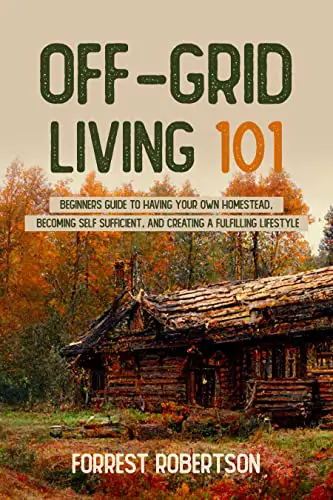




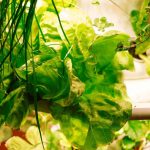
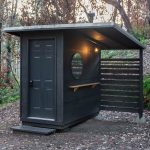
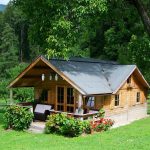

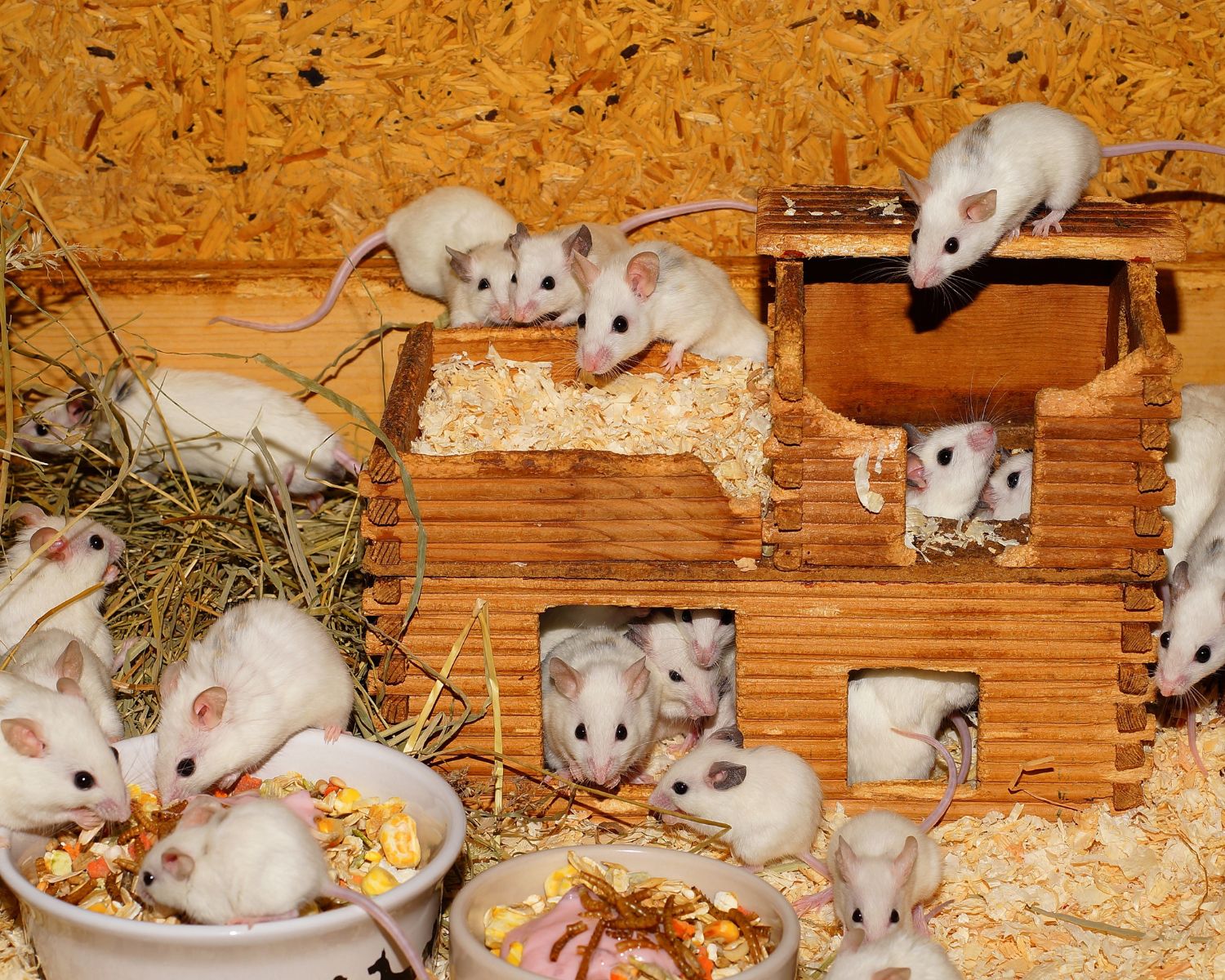
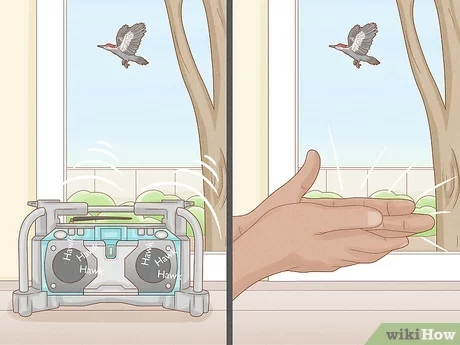

Leave a Reply